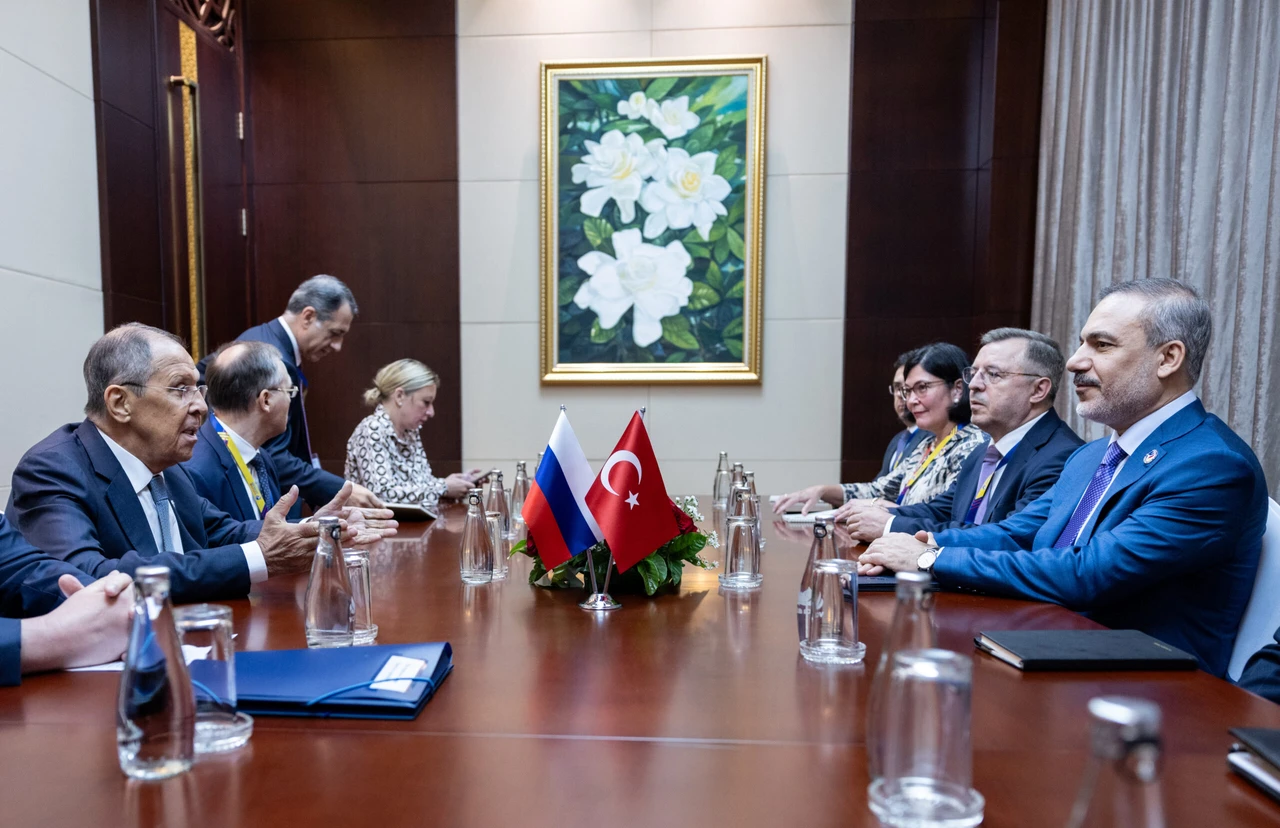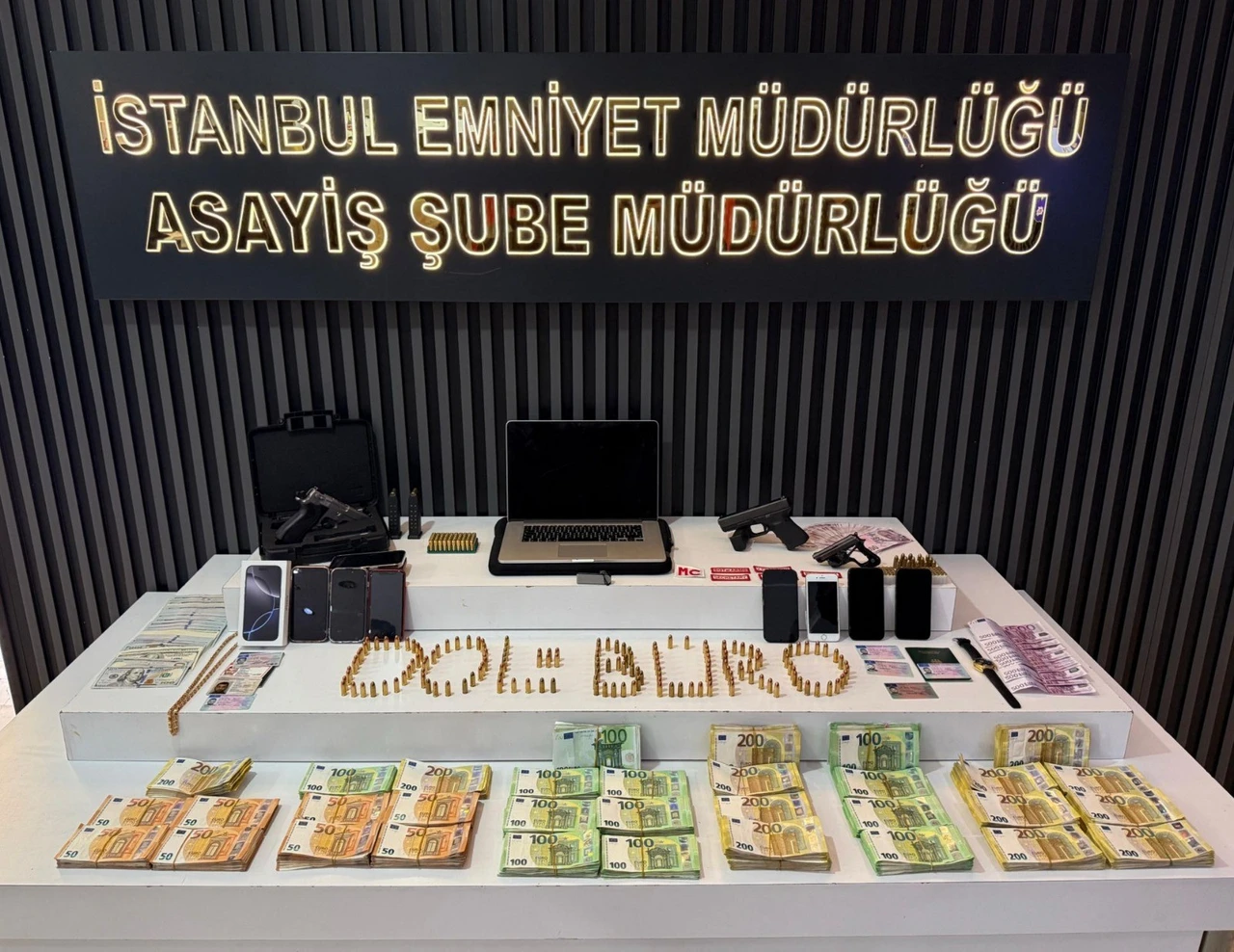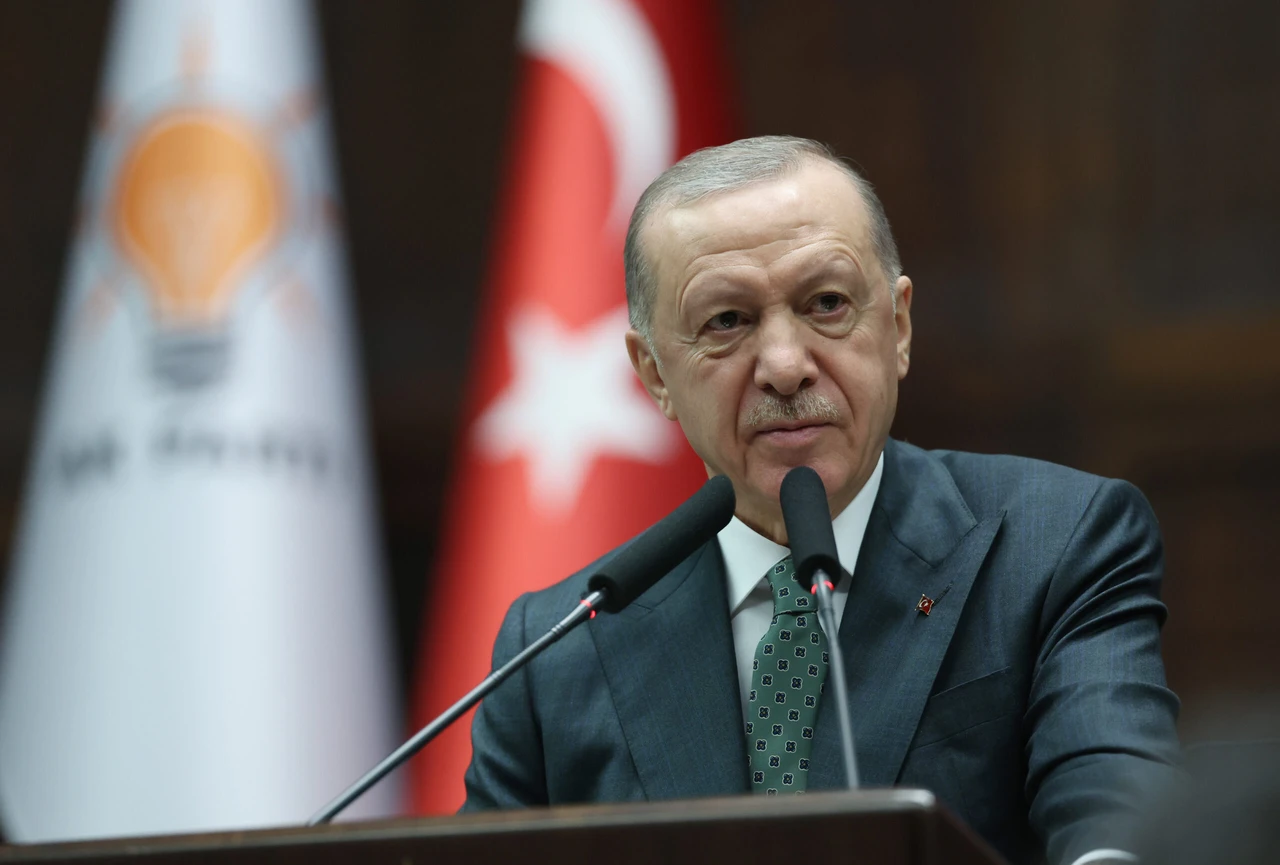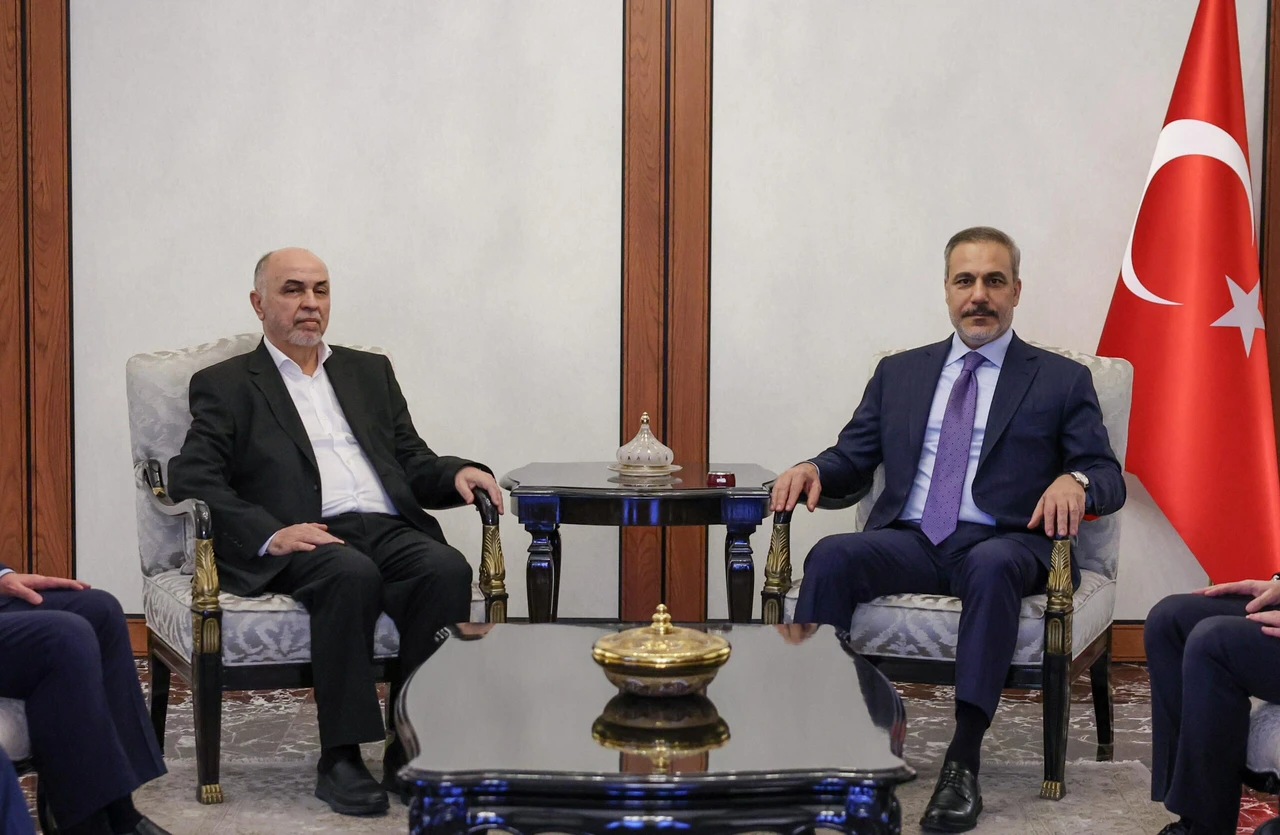Turkish, Russian FMs discuss bilateral ties, energy co-op at ASEAN Summit
 Turkish Foreign Minister Hakan Fidan meets with the Russian Foreign Minister Sergey Lavrov, Vientiane, Laos, July 26, 2024. (AA Photo)
Turkish Foreign Minister Hakan Fidan meets with the Russian Foreign Minister Sergey Lavrov, Vientiane, Laos, July 26, 2024. (AA Photo)
Türkiye’s Foreign Minister Hakan Fidan and Russian counterpart Sergey Lavrov met at the ASEAN Summit in Laos on Friday, discussing energy and economic cooperation. Fidan also outlined Ankara’s goal to become an ASEAN dialogue partner.
Fidan, who is in Vientiane, Laos’ capital, for the Sixth Trilateral Meeting of the Türkiye-ASEAN Sectoral Dialogue Partnership, which took place on the margins of the 57th ASEAN Foreign Ministers’ Meeting, met with Lavrov, according to Turkish diplomatic sources.
The two ministers also discussed the Russia-Ukraine war, developments in the Gaza Strip, the situation in Syria, and other regional issues.
Fidan is expected to meet with counterparts from Malaysia, Laos, Singapore and England. He will also meet with the ASEAN general secretary.
Political dialogue, regional developments
Fidan expressed Ankara’s aim to become ASEAN’s dialogue partner.
“This will allow us to have a more inclusive and structured dialogue and cooperation with ASEAN,” he said.
Fidan emphasized that Ankara has established a bilateral policy agenda focused on political dialogue and regional development with its global partners.
“ASEAN is one of these international partners,” he stated.
Acknowledging ASEAN’s pivotal role in the Asia-Pacific and Indian Ocean regions, the Turkish minister added: “We aim to fully leverage our existing potential in both traditional and emerging areas of cooperation. It is the right time to expand and diversify our collaboration.”
He noted that rising energy costs, increasing inflation, and a looming global food crisis necessitate more transparent, equitable, and inclusive international cooperation. Fidan pointed out that the Asia-Pacific region faces its own unique geopolitical and economic challenges.
“In this intricate landscape, Türkiye is advocating for regional ownership and effective multilateralism, as peace and development are interdependent processes,” he concluded.
Shortcomings of global order amid rising tensions
Fidan noted that the international order is facing systematic shocks and disruptions, stating, “As competition between major powers escalates, complex geopolitical dynamics emerge.”
He added that the ongoing war in Ukraine demonstrates that distance does not shield us from its reverberations.
Fidan emphasized that while discussions on cooperation for peace and development are ongoing, Palestinians are enduring severe suffering.
He criticized Israel for continuing to violate international law, offend humanity’s conscience, and destabilize peace with its actions. He warned that escalating geographic tensions remain a risk.
“Israel’s blatant disregard for international law, including UN Security Council resolutions and interim measures from the International Court of Justice, underscores the flaws in the current international system,” he said.
Historical context
Türkiye established institutional relations and signed the Treaty of Amity and Cooperation, one of ASEAN’s founding documents, in 2010, before becoming a sectoral dialogue partner in 2017.
In July last year, the foreign minister attended the fifth ASEAN-Türkiye Sectoral Dialogue Partnership Meeting in Indonesia.
Türkiye’s trade volume with ASEAN countries, which was $6.5 billion in 2010, increased over the years to reach $12 billion in 2017, the year when the sectoral dialogue partnership was established.
The trade volume between Türkiye and ASEAN reached $14.8 billion in 2022 and $14.6 billion in 2023.



